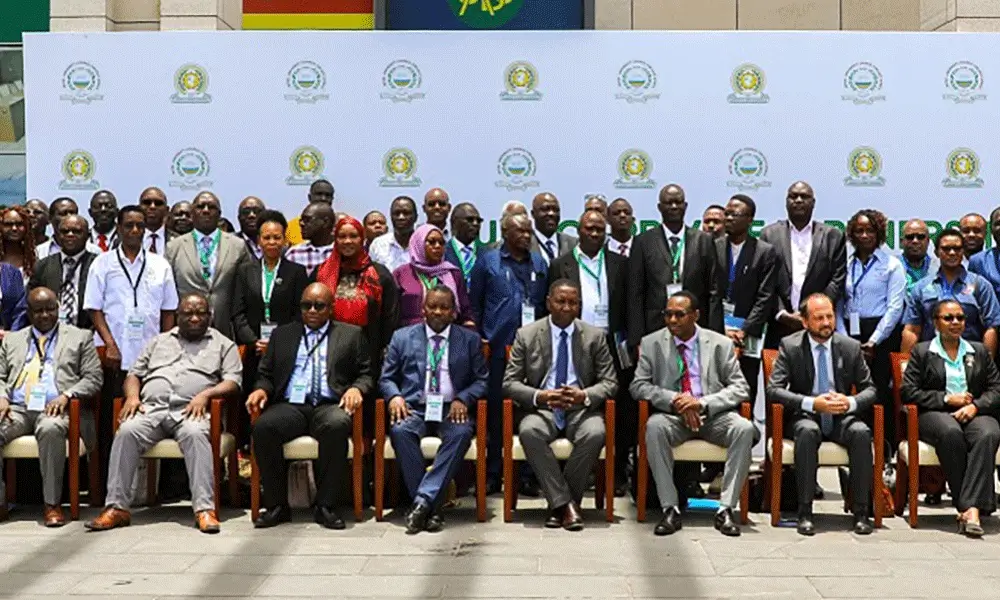
Our Projects are
Transforming African Trade
Quick Contacts
2nd Floor, Fidelity Insurance Centre Waiyaki Way, Westlands

Academic institutions and private sector companies in the East African Community (EAC) have been urged to develop strong partnerships to produce graduates with skills that can enable them to compete for employment opportunities in the seven member states region.
Speaking recently at the 12th Academia-Public-Private Partnership Forum (APPPF) and Exhibition held in Dar es Salaam, Tanzania, Tanzania’s Minister of Education, Science and Technology, Prof. Adolf Faustine Mkenda, noted that education institutions and the private sector in the economic block of EAC should work together if human capital skills are to be developed: “Education institutions and the private sector should work together to produce market-driven programmes that are responsive to the dynamic needs of the labour market and train graduates that are relevant for the socio-economic development of our region,” the minister said. He added that well-trained human capital is crucial to the economic development of the region.
Speaking at the same event, Dr. Irene Isaka, the Director for Social Sectors at the East African Community (EAC) who represented the EAC Secretary General Dr. Peter Mathuki, urged academic institutions to work with the private sector to develop curricula that are in line with the requirements of the labour market in the region and the rest of the world at large. “I would like to encourage you to continue to work together to constantly review and adapt your curriculum to remain in line with the current development agenda of the region and requirements of the labour market,” Dr. Isaka said.
On behalf of the Inter-University Council of East Africa (IUCEA), Executive Secretary Prof. Gaspard Banyankimbona observed that skills required for success in employability necessitate close collaboration between the private sector and higher education institutions to keep pace with the changing demands in the world of work. “The reality of Artificial Intelligence and machine learning demonstrates the need to continuously revise and alter our training to develop learners that can adapt to the changing demands in employment. Some of the skills learned today in our various learning ecosystems become outdated even before students graduate. Therefore, it is only through strong partnerships between academia and the private sector that we shall be able to identify skills required for future success in the job market,” explained Prof. Banyankimbona.
The meeting in Tanzania was attended by participants from development partners and the private sector, headed by the East African Business Council alongside academia.
Johannes Sperrfechter, the Head of Regional Development Cooperation at the German Embassy, on behalf of the Ambassador Dr. Regine Hess, said their government is committed to supporting the region with some funding to ensure that the corporation is developed. “The German Government is committed to offering 2.5m EUR additional funds to the dSkills@EA project to strengthen its support and initiatives in the Master Programme, digital skills trainings, and entrepreneurship support. IUCEAA and GIZ will sign their implementation agreement on Friday at this conference,” he said.
The Chief Executive Officer of the East African Business Council (EABC), John Bosco Kalisa, said there is a need to promote vocational education in the region. “To achieve greater productivity, countries must focus on demand-driven technical and vocational education, entrepreneurship, and business training programmes tied to sectors such as agriculture and manufacturing. STEM (Science, technology, engineering and mathematics) disciplines require special attention focusing on the transfer and adoption of technology,” he said.
The APPPF is a biennial forum that brings together universities, technical and vocational colleges, entrepreneurs, policymakers, and the private sector to deliberate on how to foster joint dialogue and enhance the linkage between the private sector and higher education institutions,
Read original article
Disclaimer: The views and opinions expressed in this article are those of the authors and do not necessarily reflect the official policy or position of TradeMark Africa.